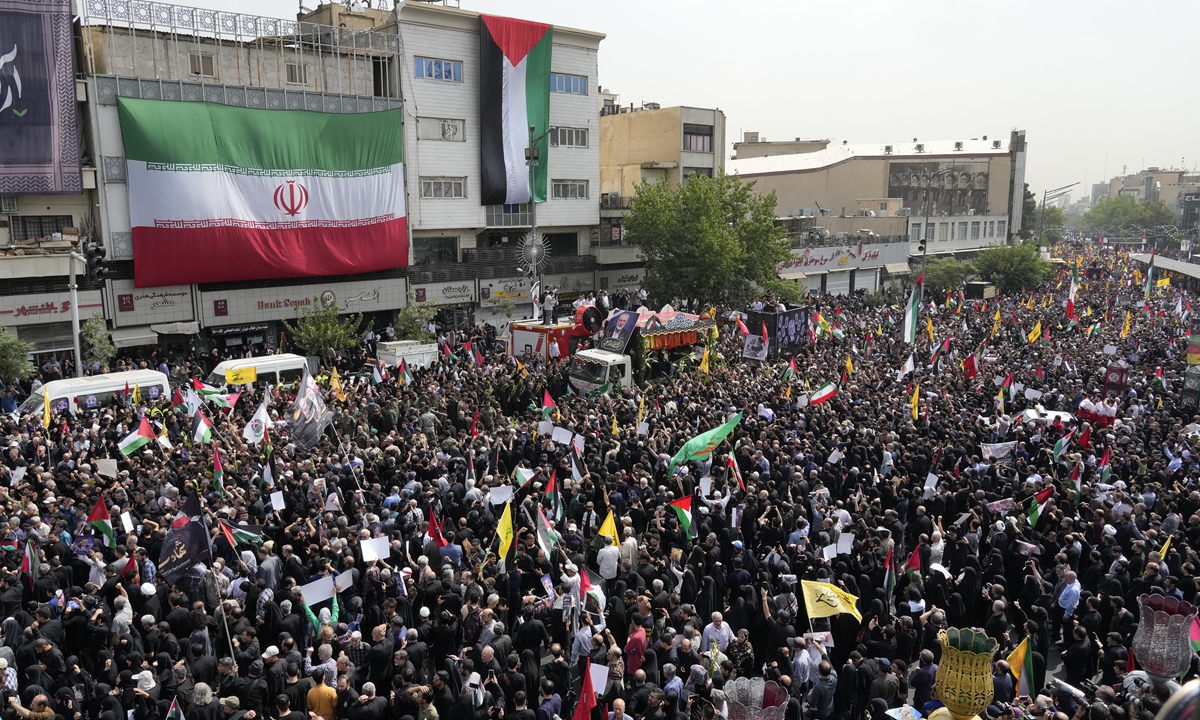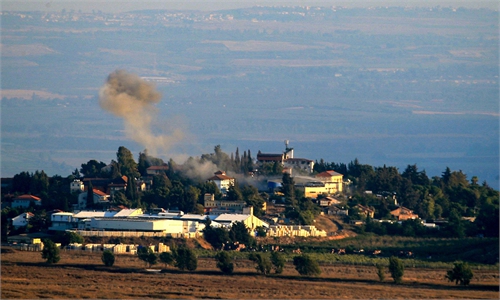
People follow a truck carrying the coffins of Hamas' political leader Ismail Haniyeh and his bodyguard who were killed in an assassination on July 31, 2024, during their funeral ceremony in Tehran, Iran on August 1, 2024. Photo: VCG
Iran may retaliate against Israel in a way similar to the previous round in April, but the intensity and scope could be larger with the deployment of proxies, Chinese experts said, as Israel and the US brace for potential attacks from Iran and Lebanese group Hezbollah, which could happen "as soon as Monday."However, the likelihood of a large-scale Middle East war being triggered is minimal, they said.
Israeli officials said they believe a joint or separate attack by Iran and Hezbollah is "inevitable," and are considering launching "a preemptive strike" to deter Iran, media reported, after Israeli Prime Minister Benjamin Netanyahu convened its security chiefs for a meeting late Sunday.
US Secretary of State Antony Blinken told his counterparts from the G7 countries on Sunday that although the exact timing is unknown, the attack by Iran and Hezbollah could start in the next 24-48 hours, meaning as early as Monday, Axios reported citing sources.
On what seems like "the brink of a wider war," Zhu Yongbiao, executive director of the Research Center for the Belt and Road at Lanzhou University, believes Iran may organize a retaliation similar to the form of the previous round in April, which are all fundamentally of "a performative nature," but the intensity and scale, as well as the value and quantity of targets, may moderately expand.
However, Iran will avoid involvement in a direct military conflict with Israel to prevent being drawn into potential military actions with the US, which is their top concern, Zhu told the Global Times on Monday.
Even if Iran takes such actions, the likelihood of triggering a large-scale Middle East war is minimal, Zhu said, "but Iran's involvement through its proxies will likely increase."
Pentagon has boosted US forces in the Middle East by deploying extra fighter jets and warships, and sending the commander of US Central Command, General Michael Kurilla, who was expected to arrive in Israel on Monday, to finalize preparations with the Israel Defense Forces.
Zhu said the US deployment is primarily aimed at deterring Iran and preventing it from inflicting serious harm on Israel. He noted that the US is currently caught in a dilemma, as it is unwilling to engage in a war with Iran at this stage and opening a new front, and at the same time it can do nothing about Israel's reckless aggression.
This has led to a peculiar scenario in which the US is being manipulated by Israel, the result of the US own indulgence of the country for a long time, Zhu said.

